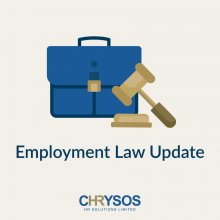Employment Law: Office Based Employees & 'Hybrid Working' | July 2021

During the Covid-19 pandemic, there has been a significant increase in home working for many organisations across all sectors. However, with the government set to relax many of the pandemic restrictions on 19th July 2021, it is important that employers look to review what working practices they may want put in place post-Covid.
In this month’s Employment Law article, we examine a number of recent reports and surveys undertaken by CIPD, YouGov and others around the topic of 'Hybrid Working' and how employers may be able to avoid some unforeseen legal pitfalls in this area.
CIPD has been a part of the Department for Business, Energy and Industrial Strategy Task Force looking into issues around flexible working and this work has become more prominent as many organisations look to establish what the new ‘norms’ will be. Part of this work has been to ‘test the water’ nationally with a survey of more than 1000 organisations - the outcome of which showed on average employers estimated 54% of the workforce was working continuously at home. This is not a surprisingly significant increase yet 40% of employers said they expect more than half their workforce to work regularly from home post Covid.
In their survey, YouGov showed that from a sample of nearly 5000 adult workers, 32% of workers were working from home full or part time prior to Covid. When asked ‘what do they want to do post Covid’ this figure rises to 57% wanting to work from home at least some of the time.
So as the data suggests, many organisations will need to develop new ’hybrid’ working arrangements to accommodate employer and employee choice. Some organisations will be closing their offices permanently and requiring people to work from home or requiring staff to work from another office instead. This kind of scenario shows that if employers are considering introducing a mix of home and office (hybrid) working then consideration needs to be given to areas such as:
- varying contracts
- potential redundancy issues
- expenses and allowances
Additionally, areas such as recruitment, training, line management and longer-term discrimination risks may need to be considered.
The first consideration therefore is whether businesses have a ‘mobility clause’ included in the statement of written particulars for employees that may require them to work from other areas of the business or does it state place of work and if so, could a potential redundancy situation arise if that place of work is no longer available? The research highlighted previously shows that this may not be a big issue for many organisations, with more employees wanting to maintain this kind of flexible hybrid working themselves. So what is next?
If you agree on a hybrid model of working covering both time in the office and time at home, then employers will need to consider what exactly will go into an agreed revised contract of employment, such as minimum number of working hours or days per week in the office. Furthermore, will there be ‘core’ hours that employees are expected to adhere to? Will there be compliance with areas such as rest breaks? How do you exercise a duty of care?
Whilst many organisations already have policies in place that cover some of these areas such as 'working from home' or 'flexible working', it may be necessary to consider if there is a need post-Covid for a ‘Hybrid Working Policy’. The evidence from employers and employees suggests this may be the way forward for many organisations.
There is more information available on this subject at:
https://www.cipd.co.uk/knowledge/fundamentals/relations/flexible-working/planning-hybrid-working
NB: This information is for general guidance only and is not legal advice. It should not be regarded or relied upon as a complete or authoritative statement of the law. However, if you have any HR issues on this or any other HR matters and would like to talk them through with our team, please don't hesitate to contact us.
Share This Post
Posted In
cHRysos HR Solutions are a UK wide HR training and consultancy company offering CIPD accredited qualifications, Apprenticeships, Training and HR Services to SMEs. For more information about how cHRysos HR can help you or your teams successfully achieve further qualifications, contact us on info@chrysos.org.uk or call 03300 562443.
